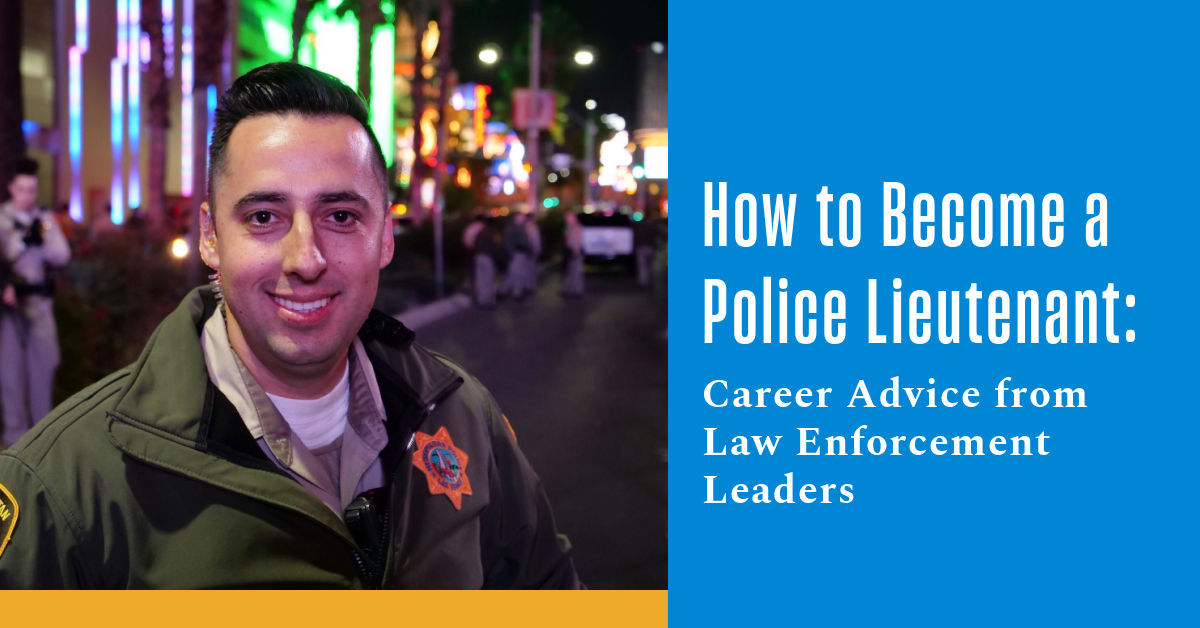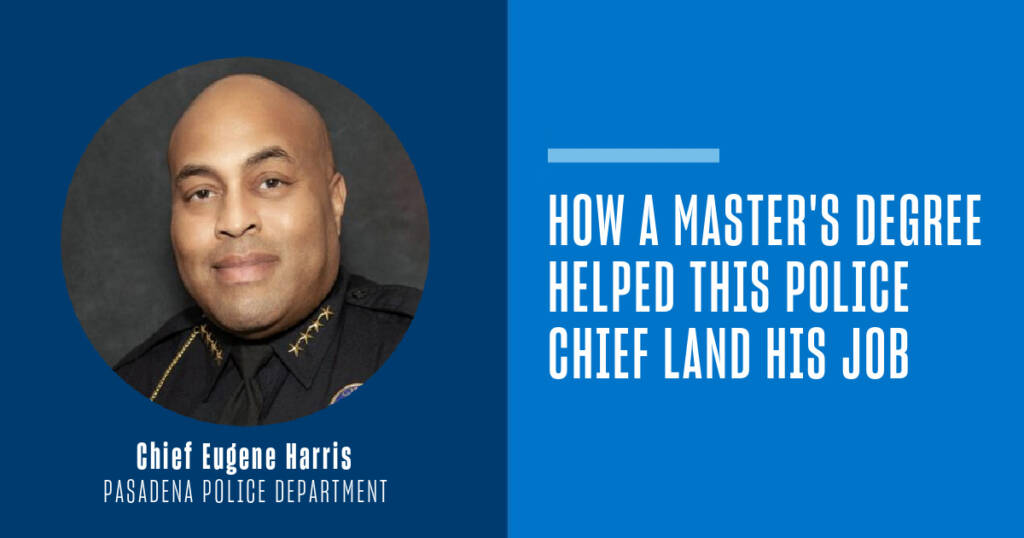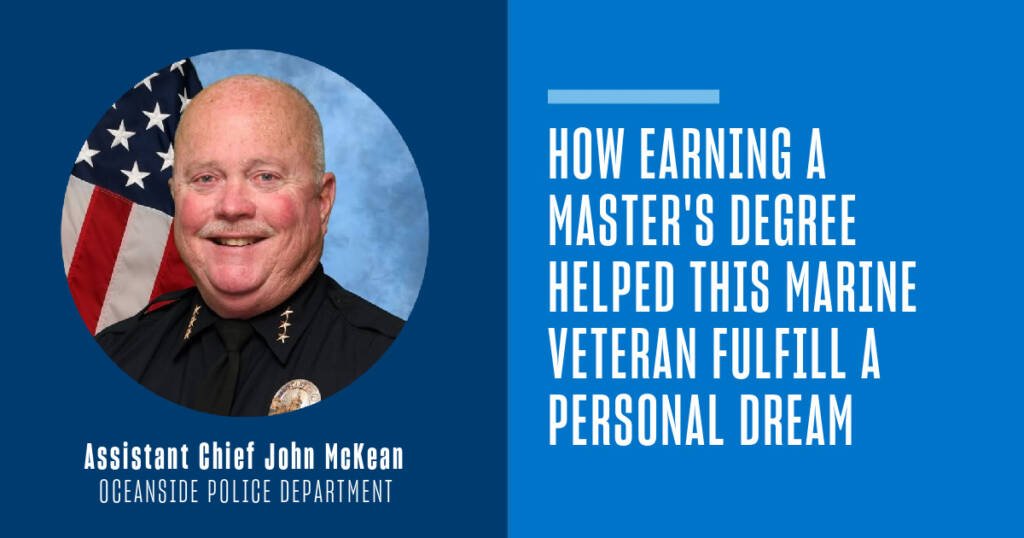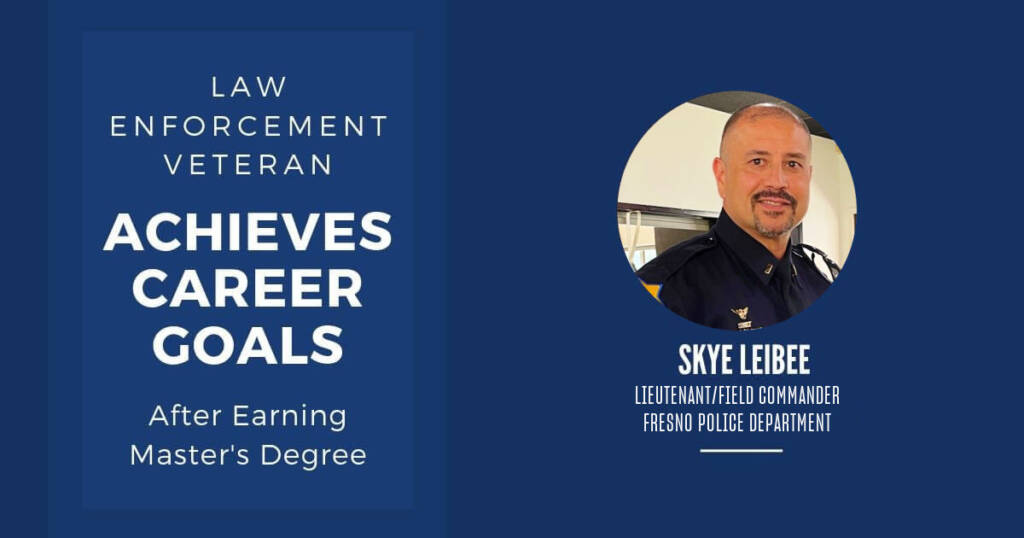Promoting up the law enforcement career ladder requires a combination of experience, knowledge, motivation and, in some departments, education. And while no two agencies are exactly the same in terms of what they require to become a lieutenant, there are certain universal qualities that have proven successful among law enforcement professionals who have successfully promoted to lieutenant.
To help inform and guide prospective law enforcement lieutenants, here is a compilation of career advice from current and former law enforcement leaders.
Tip #1: Strive to be Great Now to Become a Police Lieutenant Later
“To help differentiate oneself, my one piece of advice to hopeful supervisors parallels Admiral William H. McRaven’s philosophy about demanding SEAL recruits make their bed. That philosophy focuses on minimally accomplishing that first task of the day.
In parallel to that advice, my recommendation for becoming a lieutenant is to focus on the first task of the present assignment: Focus on today. Build trust in your abilities to perform at the pinnacle of your current assignment. Too often we are focused on the next best thing rather than making our current thing the best.
Whether assigned to human resources or as a patrol sergeant, work on being the best in that assignment. Learn and inspire those around you to do the same. Empower your troops, support and defend their ideas, and work to make the assignment just that much better for the next person to take over. Don’t ignore the possibilities of the future, but don’t let them overcome your desire to do the best job for your people as a first line supervisor.”
— Captain Michael McHenry, Orange County (Cailf.) Sheriff’s Department
[RELATED] Great leaders are always learning. Discover the Best Police Leadership Books >>
Tip #2: Have a Trusted Mentor and Constantly Strive to Be Better
“A police lieutenant needs to strike a delicate balance between leadership and management. They should take educated risks without overexposing their officers and residents to unnecessary danger. The best lieutenants acquire unique skills of operationalizing the executive staff’s intent. They adopt their agency’s visions and missions as their own and help sergeants and officers realize their daily contributions towards those ideals.
In Alameda, we require a combination of years as police sergeant and education to promote to the rank of lieutenant. From there, we start with a written exam. We have a police oral board comprised of lieutenants from surrounding agencies and a community panel comprised of business owners, faith-based groups, and others who significantly influence the community. Applicants are then placed on a promotional list which can last from six months to two years.
Having a trusted mentor who has been successful in your agency’s promotional processes is a great place to start. It was a considerable benefit for me throughout my experiences. I would encourage all who aspire to promote to seek guidance from mentors before, during, and after the promotional process. Get feedback regardless of where you land on a promotional list, and it will help you form more real self-awareness.
Having earned my master’s degree in law enforcement leadership provided vast benefits for me as a lieutenant and captain. The contemporary topics, including community engagement, communication, use of force, and technology, were excellent and provide real-world value in the profession. Hearing various challenges and successes of others in law enforcement across the nation is extraordinarily priceless.
My general advice would be to never give up on the noble profession. Take on responsibilities eagerly. Be willing to change, but not haphazardly or without exploring costs, benefits, and unintended consequences. Look to the future and make meaningful changes based on concrete principles to progress the profession. Be humble, constantly learn, take it all in stride, and do it with a happy countenance.”
— Captain Matt McMullen, Alameda (Calif.) Police Department
Tip #3: Broaden Your Perspective with Additional Leadership Opportunities
“Outside of standard test prep there are a few things people looking to promote can do well in advance of the testing process that will provide the leadership experience required to prepare for promotion:
- Pursue opportunities to take on additional leadership responsibilities in your current role. Sergeants who take on roles in training programs, the FTO program, the Special Response Team, gain experience and show a willingness to take on greater responsibilities. Find something you’re passionate about (for me it has been our Special Response Team) and identify ways that you can improve the program, build on past successes, and invest in and develop people on the team. For me, doing these things has been very fulfilling independent of the promotional process and provided me with opportunities to develop leadership and administrative skills that prepared me for the lieutenant’s position.
- Connect with other leaders. Find people who share the same professional interests and goals and work with them to move things forward. Proactively seek advice and guidance from leaders you respect, inside and outside the department. I continue to learn a lot from these connections and find that collaborative efforts have resulted in much better results.
- Broaden your perspective. Within your department that may mean taking on an assignment completely outside your experience or comfort zone. It can also mean building relationships with professionals outside your organization. Others with similar challenges may have implemented solutions you haven’t thought of. As a sergeant, I was able to learn from people at NTOA conferences, regional training events, and programs such as the Sherman Block Leadership Institute (a leadership program for sergeants in California). I also had the opportunity to share things that worked for me, as well as my missteps, with other leaders, giving them the benefit of my experience.
As a lieutenant, I continue to seek opportunities to do this through conferences such as IACP, trainings such as the FBINA, and programs such as the LEPSL program. Each of these opportunities provides a forum to discuss contemporary issues with law enforcement leaders in neighboring agencies as well as those from across the country. Exposure to professionals from outside agencies provides a broader perspective and a global view that can be valuable when working in your organization both as a line leader and as a lieutenant.”
— Lieutenant Joe Okies, Berkeley (Calif.) Police Department
Tip #4: Develop Practical Skills and Leadership Qualities
My advice to those seeking to promote to Lieutenant is two-fold; develop practical skills and leadership qualities. For the practical skills, a lieutenant is expected to take control of any dynamic scene and begin to slow the momentum, manage resources, make decisions, and implement ICS protocols to bring the event to a safe resolution. There is no substitute for experience. Take the time and effort when you find yourself on those scenes to help the ICS incident commander. Learn from past critical incidents through debriefs to determine what went wrong and what went right.
Here’s what has worked for me in my leadership role:
First, the lieutenant is responsible for the morale and direction of his/her section. You must give your people clear direction on what you want done and the mission you want accomplished. Morale is dependent on how you treat your people. Treat them fair and be friendly but also hold those accountable that don’t work to your standards. You can hold them accountable but still treat them with respect. Give them the tools they need (training, equipment etc.) to accomplish the mission or they will never take it seriously.
Second, tell them the reason for your decisions. Avoid using the phrase “because I told you,” except during a critical incident when seconds count. During those times, they need to follow orders and direction. After those critical incidents, debrief with your teams to allow them to hear the rationale on some of the decisions you made. Allow them to ask questions so they can better understand your decision-making process.
Third, when you give direction to your section, let them know what you want it to look like in the end but don’t micromanage how they get to the goal. Cops are ingenious and creative. We will figure out how to get stuff done. For instance, I am the lieutenant in charge of our crisis negotiator team. Recently we held a week long basic negotiator school for our department and several other agencies. I knew I wanted it to have a full day of scenarios at the end of the week. I gave them that direction and told them what I wanted and that all 20 students needed to have equal time on the phone with the role player. What I didn’t tell them was the how. I trusted my team to figure that part out and they came through with amazing scenarios and planned the whole day so it went smoothly.
Next, don’t be afraid to admit when you make a mistake. Your people will respect you for it if it happens and you own it.
Lastly, when things go wrong recognize the difference between a mistake and misconduct or lack of training. Address it appropriately either through training, an informal counseling session, or if necessary, a formal internal affairs case. One of the biggest mistakes I see from new leaders is that they want to be liked all the time and don’t hold their people accountable when necessary.”
— Lieutenant Nate Chio, Las Vegas Metropolitan Police Department
Tip #5: Understand the Lieutenant’s Role and Why You Want to Promote
“Lieutenants in policing are at the crossroads of their departments. Sergeants don’t need to have the full political picture that drives policy and community relations to be effective. Captains don’t have to know the ever-changing nuances of daily police tactics to do their job. Lieutenants must have both. They have to know the political landscape and how it affects police policy and tactics and understand what those changes will mean for the line officers who employ those tactics. A truly effective lieutenant sees the entire picture, top to bottom, and ensures their officers have the resources and information they need to do their job.
I have had the privilege of mentoring some officers and sergeants in my department, encouraging them to promote and serve at higher levels. My advice to them is straightforward: First, know why you want to promote. Is it for the paycheck, or do you truly care about making a positive difference for those in your command? If the latter, you do not need rank to start. Most good leaders were leading long before they made rank. Start by positively affecting those in your current sphere of influence. Then expand your sphere, either by rank, reputation, or position. The rank will usually find the people that do this well.
Second, learn your supervisor’s job so you are ready to step up in their absence. Every boss can teach you valuable lessons, whether they are good at their job or not. Some of the most impactful lessons are learned by watching the job done poorly and figuring out how you would do it better. While you are learning your supervisor’s job, make sure you are teaching your job to someone coming up in your command as well. Having a succession plan is critical.
Third, make sure promotion is the right step for you, your career, and your family. If all three are not on board, life at the higher rank will be even more challenging.”
— Lieutenant Jim Britt, Seattle Police Department
[RELATED] Law Enforcement Promotion: Making the Police Career Ladder Work for You >>
Tip #6: Be Able to Articulate Your Leadership Philosophy
“Two things that will set you apart from other candidates are your ability to describe and explain the role of a lieutenant to an interviewer and your ability to communicate your leadership point-of-view (POV). You should be able to talk about your leadership POV and work on communicating it to others. The promotional process is a great place to deliver it.
Like all leaders, a lieutenant should value relationships. Seek and nurture relationships continually–even when you have differing points of view.
A lieutenant may be the face and voice of the organization at the onset of an incident. They need to possess the knowledge and have reputation and integrity interests known to be sound, consistent, and trustworthy.
A lieutenant is connected and aware so that they are constantly assessing and thinking about how to lead in an environment that requires critical thinking.
A lieutenant must be self-aware of emotional triggers and be able to manage them.
A lieutenant watches what is happening now and what threats and obstacles may be approaching.
A lieutenant listens to their teams and responds when it is time to do so, and possesses patience when not to act until necessary.
A lieutenant knows how to communicate with others and understand the difference between what is urgent and necessary. They also speak their leadership POV so others know what they expect.
A lieutenant masters the ability to work under pressure. They manage their emotions because they know they are setting an example.
A lieutenant is agile. Because they pay attention, they can quickly decide while assessing what is happening and admit when they do not know the answer or make a mistake.
A lieutenant must show others that they know how to follow the rules and instructions from others of higher levels of authority and expertise. When they do this, it sets an example. It is a vital part of being a leader.
If you want to learn more about developing your leadership POV, get Ken Blanchard’s book, Leading at a Higher Level.”
— Captain Mike Loarie, retired, Escondido (Calif.) Police Department
Tip #7: Seek Out Leadership Training Specific to Law Enforcement
“If you are seeking a promotion to Lieutenant, I would suggest going through a leadership development course or higher education. Higher education in law enforcement leadership will put you in the mindset of being a leader in your organization and how to think organizationally and collaboratively with other departments and organizations both in and outside of your agency. It will also help you figure out what kind of leader you are and the type of leader you want to be. The thirty-thousand foot view is key to higher-level thinking, and you attain that through higher education and constant self-assessment. In today’s climate, understanding how to navigate successfully through the future of law enforcement is going to be critical for all leaders in the profession.”
— Lieutenant Jeneane Kucker, Santa Rosa (Calif.) Police Department





